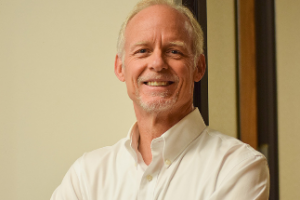Column: Catching Air
The Napa Catholic Conference last month included an inspiring series of talks on subjects as wide-ranging as theology, art, science and politics. One of the topics most discussed was the recent Dobbs case by which the Supreme Court finally overturned the so-called Constitutional right to abortion under the Court’s 1973 decision in Roe v. Wade.
The Court in Dobbs held that Roe v. Wade was “egregiously wrong” from the day it was first unleashed on our country almost fifty years ago. Pro-lifers are exuberant that Roe was finally overturned and the question on everyone’s mind is “what’s next?”
Speakers in Napa included Kristan Hawkins from Students for Life; Ryan Anderson, president of the Ethics and Public Policy Center (EPPC); attorneys with the Alliance Defending Freedom; David Daleiden, president and founder of The Center for Medical Progress; Lila Rose, president of Live Action, and David Dewhirst, Solicitor General for the State of Montana. 

A common theme was that much of the abortion battle will be moving from the federal Court system to the individual states now that the Supreme Court has finally ruled that there is no right to abortion under our federal Constitution.
State abortion battles
Many of the states are passing laws now to restrict abortions. Some are also getting ready to begin enforcing older abortion laws, still on the books, that were put on hold for almost fifty years by the Roe case. Thirteen states have “trigger laws” that were passed some time ago in preparation for the overturning of Roe. These are laws that were written to be “triggered” or automatically activated upon the overturning of Roe. Predictably, the pro-abortion forces are working to attack these laws, arguing in many cases that they conflict with state Constitutions or other state laws. Pro-abortionists are making the same arguments in state Courts as they did in the old Roe case but this time based on language in state Constitutions.
Pro-abortion forces are trying to pass new laws promoting abortion, and there are renewed efforts by each side of the abortion issue to appoint or elect judges and state legislators favorable to their positions.
Results so far have been mixed with the abortion industry having some success in slowing down pro-life efforts. Kansas voters, unfortunately, just recently turned down a ballot proposal that would have disclaimed any right to abortion under that state’s Constitution. The state of California is working on a particularly odious proposition for its November ballot that would create a state right to abortion in the California Constitution.
David Dewhirst, Solicitor General for the State of Montana, told his audience that the pro-life states are getting more organized and working together on pro-life issues more than in the past. For example, twenty-six states joined together in filing a legal brief in the Dobbs case compared to none in the 1973 Roe case. This is part of a growing trend now for conservative states to push back against federal overreach, and the current Justices on our Supreme Court seem increasingly respectful of states’ rights.
Even among states that restrict abortions, however, there are huge variations
The Mississippi law that was upheld in the Dobbs case still allows abortions before 15 weeks gestation, and many states will follow that example or try to set their own time limits. Other states will be outlawing abortions in most cases, but with certain exceptions for the “hard cases” like rape and incest or when the mother’s life or “health” are at risk. Of course, pro-abortion activists will push against just about every abortion restriction. 

Many otherwise staunch pro-lifers are willing to temporarily concede some allowances for abortion in limited situations, like very early pregnancies or cases of rape or incest, believing that short term compromises and an incremental approach will gradually shrink the number of abortions over time. Others insist that we must categorically reject all abortions and any abortion law exceptions since the protection of innocent human life is not negotiable.
Kristan Hawkins, president of Students for Life, gave an inspiring talk urging pro-lifers to seize our momentum after Dobbs to keep pushing for more protections for the preborn. She warned against settling for a “false consensus” with limited abortion restrictions that would cede our moral high ground and risk permanent compromise, possibly even serving as an excuse for some people to avoid the hard fight against all abortions.
Federal abortion battles
While state abortion battles are getting most of the attention, conflicts are also brewing at the federal level. Fortunately, pro-abortionists have been unsuccessful, at least so far, in their efforts to pass a national right to abortion law. And even if they can get enough votes in Congress at some point in the future, a national abortion law might be rejected by the Supreme Court under the Court’s reasoning in the Dobbs case according to John Bursch, senior counsel at the Alliance Defending Freedom.
The Biden administration is working to force emergency rooms to provide abortions in certain cases and pushing for the use of taxpayer money to pay women to travel to pro-abortion states to terminate their pregnancies. Another upcoming battle is whether or not the federal Food and Drug Administration (FDA) can force pro-life states to allow chemical abortions, despite the Court’s ruling in Dobbs.
This is a big issue when chemical abortions represent half of all the abortions in America.
Critical Point: Who should decide?… and why
Several speakers at Napa talked about whether the U.S. Constitution can be interpreted to include an affirmative right to life which would then preempt any state laws allowing abortion. If preborn babies are human “persons,” as shown by modern science and genetics, abortion should be unconstitutional under the Fifth and Fourteenth Amendments which prohibit states from depriving any “person” of their life without due process or equal protection under the laws. 

With all due respect to the extraordinary speakers at Napa, there were a few comments that might have suggested too much deference to the idea that abortion laws should be decided by the voters.
While that is definitely the Supreme Court’s current leaning, and we generally prefer the will of the voters over activist federal judges, fundamental human rights like the right to life are too important to depend on majority voting. The right to life is every bit as important as free speech and racial equality which are fundamental Constitutional rights that cannot be voted away by a simple majority.
John Bursch from the Alliance Defending Freedom (ADF) recognized that several briefs filed in the Dobbs case argued for a Constitutional right to life under the Fifth and Fourteenth Amendments. While the Court refused to go that far in its Dobbs decision, it is an important argument that we should keep making, even if the Court and our prevailing culture are not there yet.
John Bursch urged pro-life lawyers to keep reminding Courts and judges that life is a fundamental Constitutional right and the protection of preborn life was part of our country’s history at the time of the Fourteenth Amendment.
Going Forward: The Need to change hearts and culture
John Bursch from ADF noted that laws generally follow the culture, emphasizing the overriding need to rebuild a culture of life. He expressed his hope that as some states become more pro-life, citizens in the other states may be inspired to see that there are places where babies are born and women and families are happy, disproving the abortionist lie that women need to be rid of their children to be happy.
Ryan Anderson, president of EPPC, noted that our culture for many years has promoted the lie that women need to be like men, unencumbered by children, in order to find their personal fulfillment, whether in business, lifestyle choices or sex without pregnancy. In order to get beyond a culture of abortion, we need fundamental changes in the prevailing culture to value true femininity, marriage and family.
Kristan Hawkins from Students for Life and Kathy Sparks from Mosaic Health in Illinois emphasized the tireless efforts by  pregnancy resource centers (PRC’s) to reach the hearts of women one at a time, reassuring them that there are people truly willing to help them with their pregnancies and beyond. In fact, there are far more pregnancy resource centers in America than abortion clinics. Ironically, many of these PRC’s are not well known, and many are being attacked by pro-abortion forces who falsely accuse them of restricting “choice” by discouraging abortions.
pregnancy resource centers (PRC’s) to reach the hearts of women one at a time, reassuring them that there are people truly willing to help them with their pregnancies and beyond. In fact, there are far more pregnancy resource centers in America than abortion clinics. Ironically, many of these PRC’s are not well known, and many are being attacked by pro-abortion forces who falsely accuse them of restricting “choice” by discouraging abortions.
 pregnancy resource centers (PRC’s) to reach the hearts of women one at a time, reassuring them that there are people truly willing to help them with their pregnancies and beyond. In fact, there are far more pregnancy resource centers in America than abortion clinics. Ironically, many of these PRC’s are not well known, and many are being attacked by pro-abortion forces who falsely accuse them of restricting “choice” by discouraging abortions.
pregnancy resource centers (PRC’s) to reach the hearts of women one at a time, reassuring them that there are people truly willing to help them with their pregnancies and beyond. In fact, there are far more pregnancy resource centers in America than abortion clinics. Ironically, many of these PRC’s are not well known, and many are being attacked by pro-abortion forces who falsely accuse them of restricting “choice” by discouraging abortions.David Daleiden, president of The Center for Medical Progress, best known for his undercover investigation exposing Planned Parenthood’s sale of aborted baby parts, emphasized the need to focus on the humanity of preborn babies, to keep the public’s attention on the victims of abortion, including all preborn children and their mothers, fathers and other family members. He encouraged dialogue with abortion providers to appeal to their hearts. The abortion industry does not want to talk about its tiny victims but science is overwhelmingly on the pro-life side with modern ultrasound machines and advances in genetics and medical science proving that each preborn baby is a unique person with its own separate identity and DNA from the moment of conception.
Lila Rose, president of Live Action, said we need to fight for the hearts and minds of each person, one at a time. She described a five-part plan to make abortion not only illegal but also unthinkable:
- State and federal legal protection for the preborn.
- A “ground game” involving local organization in every community.
- Digital, on-line, activism reaching millions.
- Support for Pregnancy Resource Centers to help women choose life.
- Promoting a new (actually traditional) sexual ethic that is pro-marriage and pro-family, recognizing that the vast majority of women who have abortions are unmarried.
A common theme in Napa was that we should consider the overruling of Roe v. Wade not as the end of this fight but as a new beginning. The pro-abortionists will not rest and we all need to get involved in whatever way we can to further the protection of preborn life.
All hands on deck!
David G. Bjornstrom is a member of the U.S. Supreme Court bar and retired California attorney at law with 38 years specializing in business, estate and... MORE »



You must be logged in to post a comment.